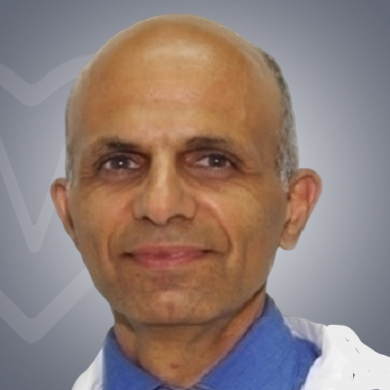
of experience
Speaks: English
Some of the conditions surgical oncologist Jacob Korach treats are:
The goal of breast cancer surgery is to excise the tumor and a portion of the surrounding tissues while conserving the breast. Breast cancer surgery methods may vary in the amount of breast tissue which is removed with the tumor. This depends on the overall tumor location, how far it has spread, as well as one’s personal feelings. The surgeons also remove some lymph nodes under this arm so that these can be removed. This helps your doctor to plan your treatment.
People may experience both symptoms and signs of cancer, and this shows that something is going abnormal in the body. Also, recognizing these indicators could lead to an earlier diagnosis of the disease and possibly of better treatment. When cancer grows, the organs, nerves, and blood vessels are a little compressed, which can lead to signs and symptoms. Cancer can produce various symptoms and these can differ from person to person. Some of the signs and symptoms of different types of cancer are as follows:
The operating hours of Dr Jacob Korach is 11 am to 6 pm (Monday to Saturday), The doctor does not see patients on Sunday.
The below-listed popular procedures for cancer treatment are performed by Dr. Jacob Korach
The surgical oncologist can perform even the most complicated cases with ease. The doctor has reported a high success rate in performing various procedures with high precision and accuracy. The doctor also holds a rich experience in handling complex cases with ease. The specialist is proficient in using the latest techniques to perform the procedures. Cancer surgery is done using two techniques - open surgery and minimally invasive surgery. Open surgery involves making an incision to remove the cancerous tissues. Some adjacent healthy tissues are also extracted in this process. There are several techniques available for minimally invasive surgery, such as cryosurgery, robotic surgery, laparoscopy, cryosurgery, and laser surgery.

Share Your Experience about Dr. Jacob Korach

Surgical oncologists are specialists who have received training in the diagnosis and treatment of cancer through surgery. A surgical oncologist performs procedures like biopsy and surgery to remove cancerous tissues. A surgical oncologist performs surgeries to know which parts of the body cancer has spread. In order to diagnose cancer, a surgical oncologist might perform biopsies. After a biopsy, a surgical oncologist sends the samples to a pathologist. If cancer is detected, you may need to consult the surgical oncologist again to have the tumor removed. The surgical oncologist performs a staging surgery to determine a tumor’s size.
The tests required before and during the consultation by a surgical oncologist include:
In most cases, surgical oncologists need to perform a biopsy in order to diagnose cancer. In this procedure, the doctor removes a part of the body tissues to examine under a microscope. The doctor then does other tests to check if the tissue is cancer.
You may see a surgical oncologist in case you have abnormal growth or tumor. If your primary doctor suspects cancer, they will refer you to a surgical oncologist for diagnosis. If you have been diagnosed with cancer, a doctor will refer you to surgical oncologists for your cancer treatment. In the below-listed situations, you must seek assistance from a surgical oncologist: